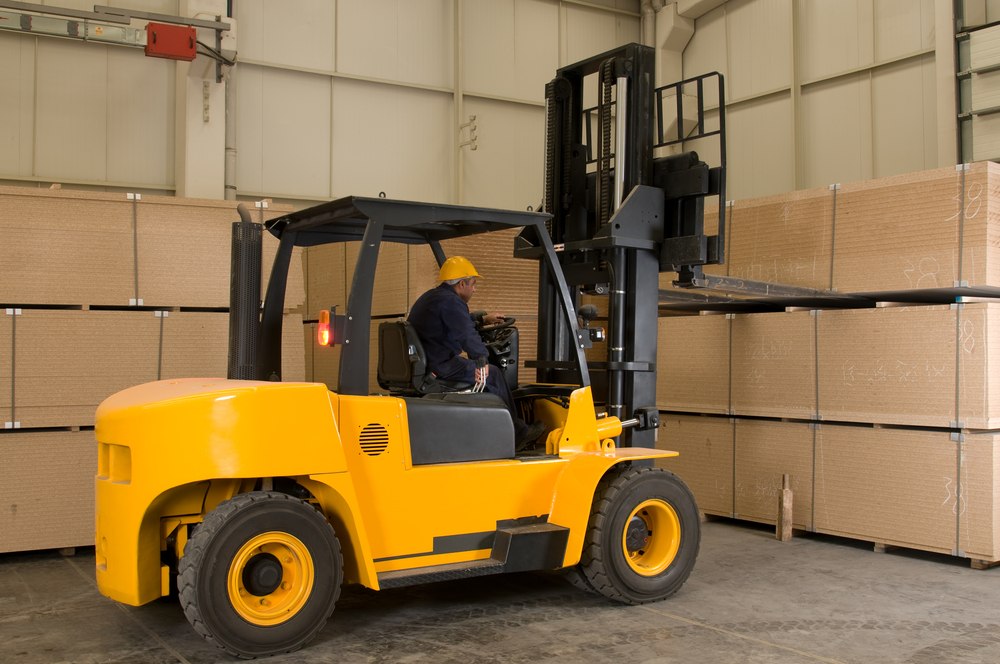
Understanding Texas Safety Regulations for Forklift Operations
June 3, 2024 5:10 pm Leave your thoughtsForklifts are indispensable in various industries, including warehousing, construction, and manufacturing. However, their operation comes with significant risks, necessitating stringent safety regulations. In Texas, forklift operators and employers must adhere to specific rules to ensure safe and efficient operations. This guide will delve into Texas forklift safety regulations and forklift operation rules in Texas to help you stay compliant and protect your workforce.
Overview of Forklift Safety in Texas
The Importance of Forklift Safety
Forklifts are powerful machines capable of lifting and transporting heavy loads. While essential for many tasks, their operation poses risks such as accidents, injuries, and even fatalities. According to the Occupational Safety and Health Administration (OSHA), forklift-related accidents account for numerous workplace injuries and deaths annually. Adhering to safety regulations is crucial for minimizing these risks.
Regulatory Framework
In Texas, forklift safety regulations align with federal OSHA standards, ensuring uniformity in safety practices. Texas forklift safety regulations are designed to protect operators, workers, and bystanders by setting guidelines for training, equipment maintenance, and operational procedures.
Texas Forklift Safety Regulations
Training Requirements
Operator Training
Texas forklift safety regulations mandate that all forklift operators receive proper training before operating the equipment. Training programs must cover both theoretical and practical aspects, ensuring operators understand the machine’s functionality and safety protocols.
Certification
Operators must pass an evaluation to demonstrate their competency. This evaluation includes a written test and a practical demonstration of skills. Upon successful completion, operators receive certification, which must be renewed every three years or sooner if the operator is involved in an accident or demonstrates unsafe practices.
Equipment Maintenance
Regular Inspections
Forklifts must undergo regular inspections to ensure they are in safe working condition. Daily pre-operation inspections should include checks on tires, forks, brakes, lights, and other critical components. Any identified issues must be addressed promptly.
Maintenance Records
Employers are required to maintain detailed records of all inspections, maintenance, and repairs. These records should be readily available for review by safety inspectors and must demonstrate a consistent commitment to equipment upkeep.
Operational Guidelines
Safe Operation Practices
Forklift operation rules in Texas emphasize safe practices to prevent accidents. Operators must adhere to speed limits, use seat belts, and follow designated routes within the facility. Additionally, forklifts should not be used to carry passengers unless designed for that purpose.
Load Handling
Proper load handling is critical for preventing accidents. Forklifts should never be overloaded, and loads must be stable and secure before movement. Operators should use caution when lifting, lowering, and transporting loads to avoid tipping or dropping them.
Forklift Operation Rules in Texas
Workplace Safety Measures
Designated Areas
Workplaces should have clearly designated areas for forklift operations to minimize the risk of collisions with pedestrians or other vehicles. Marked pathways, signs, and barriers can help direct traffic and enhance safety.
Pedestrian Safety
Pedestrians should be aware of forklift activities and maintain a safe distance. Employers can enhance safety by implementing pedestrian training programs and installing warning systems such as lights or alarms on forklifts.
Environmental Considerations
Indoor and Outdoor Use
Forklift operation rules in Texas address the different environments in which forklifts operate. For indoor use, adequate ventilation is essential to prevent the buildup of harmful exhaust fumes. Outdoor operations must consider weather conditions and terrain to ensure stability and safety.
Lighting and Visibility
Proper lighting is crucial for safe forklift operation, especially in dimly lit areas or at night. Forklifts should be equipped with headlights and warning lights to improve visibility for both the operator and others in the vicinity.
Emergency Procedures
Accident Response
In the event of an accident, immediate action is necessary to mitigate harm. Operators should be trained in emergency response procedures, including shutting down the forklift, providing first aid, and notifying emergency services.
Reporting and Investigation
All accidents, regardless of severity, must be reported and investigated to identify the cause and prevent recurrence. Employers should maintain records of incidents and implement corrective actions to address identified hazards.
Compliance and Enforcement
OSHA Inspections
OSHA conducts regular inspections to ensure compliance with Texas forklift safety regulations. Employers must be prepared for these inspections by maintaining up-to-date training records, maintenance logs, and safety protocols.
Penalties for Non-Compliance
Failure to comply with forklift operation rules in Texas can result in significant penalties, including fines and legal action. Employers are responsible for ensuring that all safety regulations are followed to avoid these consequences.
Continuous Improvement
Maintaining a culture of safety requires ongoing effort. Employers should regularly review and update safety practices, provide refresher training for operators, and invest in new technologies or equipment that enhance safety.
Conclusion
Adhering to Texas forklift safety regulations and forklift operation rules in Texas is essential for creating a safe workplace. By ensuring proper training, maintaining equipment, and following operational guidelines, employers can significantly reduce the risk of accidents and injuries. Prioritizing safety not only protects workers but also enhances productivity and operational efficiency. Stay informed, stay compliant, and foster a culture of safety in your workplace.
Need Heavy Equipment Experts in Abilene, TX?
Categorised in: Forklift Certification, Forklift Service, Forklift Training, Forklifts
This post was written by admin
